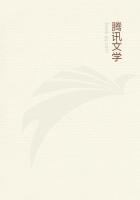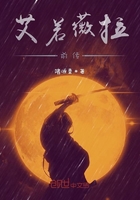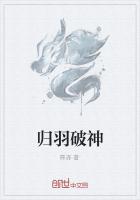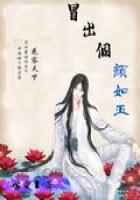THE YOUNG PRACTITIONER
[A Valedictory Address delivered to the Graduating Class of the Bellevue Hospital College, March 2, 1871.]
The occasion which calls us together reminds us not a little of that other ceremony which unites a man and woman for life. The banns have already been pronounced which have wedded our young friends to the profession of their choice. It remains only to address to them some friendly words of cheering counsel, and to bestow upon them the parting benediction.
This is not the time for rhetorical display or ambitious eloquence.
We must forget ourselves, and think only of them. To us it is an occasion; to them it is an epoch. The spectators at the wedding look curiously at the bride and bridegroom; at the bridal veil, the orange-flower garland, the giving and receiving of the ring; they listen for the tremulous "I will," and wonder what are the mysterious syllables the clergyman whispers in the ear of the married maiden.
But to the newly-wedded pair what meaning in those words, "for better, for worse," "in sickness and in health," "till death us do part!" To the father, to the mother, who know too well how often the deadly nightshade is interwoven with the wreath of orange-blossoms, how empty the pageant, how momentous the reality!
You will not wonder that I address myself chiefly to those who are just leaving academic life for the sterner struggle and the larger tasks of matured and instructed manhood. The hour belongs to them; if others find patience to listen, they will kindly remember that, after all, they are but as the spectators at the wedding, and that the priest is thinking less of them than of their friends who are kneeling at the altar.
I speak more directly to you, then, gentlemen of the graduating class. The days of your education, as pupils of trained instructors, are over. Your first harvest is all garnered. Henceforth you are to be sowers as well as reapers, and your field is the world. How does your knowledge stand to-day? What have you gained as a permanent possession? What must you expect to forget? What remains for you yet to learn? These are questions which it may interest you to consider.
There is another question which must force itself on the thoughts of many among you: "How am I to obtain patients and to keep their confidence? "You have chosen a laborious calling, and made many sacrifices to fit yourselves for its successful pursuit. You wish to be employed that you may be useful, and that you may receive the reward of your industry. I would take advantage of these most receptive moments to give you some hints which may help you to realize your hopes and expectations. Such is the outline of the familiar talk I shall offer you.
Your acquaintance with some of the accessory branches is probably greater now than it will be in a year from now,--much greater than it will by ten years from now. The progress of knowledge, it may be feared, or hoped, will have outrun the text-books in which you studied these branches. Chemistry, for instance, is very apt to spoil on one's hands. "Nous avons change tout cela" might serve as the standing motto of many of our manuals. Science is a great traveller, and wears her shoes out pretty fast, as might be expected.
You are now fresh from the lecture-room and the laboratory. You can pass an examination in anatomy, physiology, chemistry, materia medica, which the men in large practice all around you would find a more potent sudorific than any in the Pharmacopceia. These masters of the art of healing were once as ready with their answers as you are now, but they have got rid of a great deal of the less immediately practical part of their acquisitions, and you must undergo the same depleting process. Hard work will train it off, as sharp exercise trains off the fat of a prize-fighter.
Yet, pause a moment before you infer that your teachers must have been in fault when they furnished you with mental stores not directly convertible to practical purposes, and likely in a few years to lose their place in your memory. All systematic knowledge involves much that is not practical, yet it is the only kind of knowledge which satisfies the mind, and systematic study proves, in the long-run, the easiest way of acquiring and retaining facts which are practical.
There are many things which we can afford to forget, which yet it was well to learn. Your mental condition is not the same as if you had never known what you now try in vain to recall. There is a perpetual metempsychosis of thought, and the knowledge of to-day finds a soil in the forgotten facts of yesterday. You cannot see anything in the new season of the guano you placed last year about the roots of your climbing plants, but it is blushing and breathing fragrance in your trellised roses; it has scaled your porch in the bee-haunted honey- suckle; it has found its way where the ivy is green; it is gone where the woodbine expands its luxuriant foliage.
Your diploma seems very broad to-day with your list of accomplishments, but it begins to shrink from this hour like the Peau de Chagrin of Balzac's story. Do not worry about it, for all the while there will be ****** out for you an ampler and fairer parchment, signed by old Father Time himself as President of that great University in which experience is the one perpetual and all- sufficient professor.
Your present plethora of acquirements will soon cure itself.
Knowledge that is not wanted dies out like the eyes of the fishes of the Mammoth Cave. When you come to handle life and death as your daily business, your memory will of itself bid good-by to such inmates as the well-known foramina of the sphenoid bone and the familiar oxides of methyl-ethylamyl-phenyl-ammonium. Be thankful that you have once known them, and remember that even the learned ignorance of a nomenclature is something to have mastered, and may furnish pegs to hang facts upon which would otherwise have strewed the floor of memory in loose disorder.

